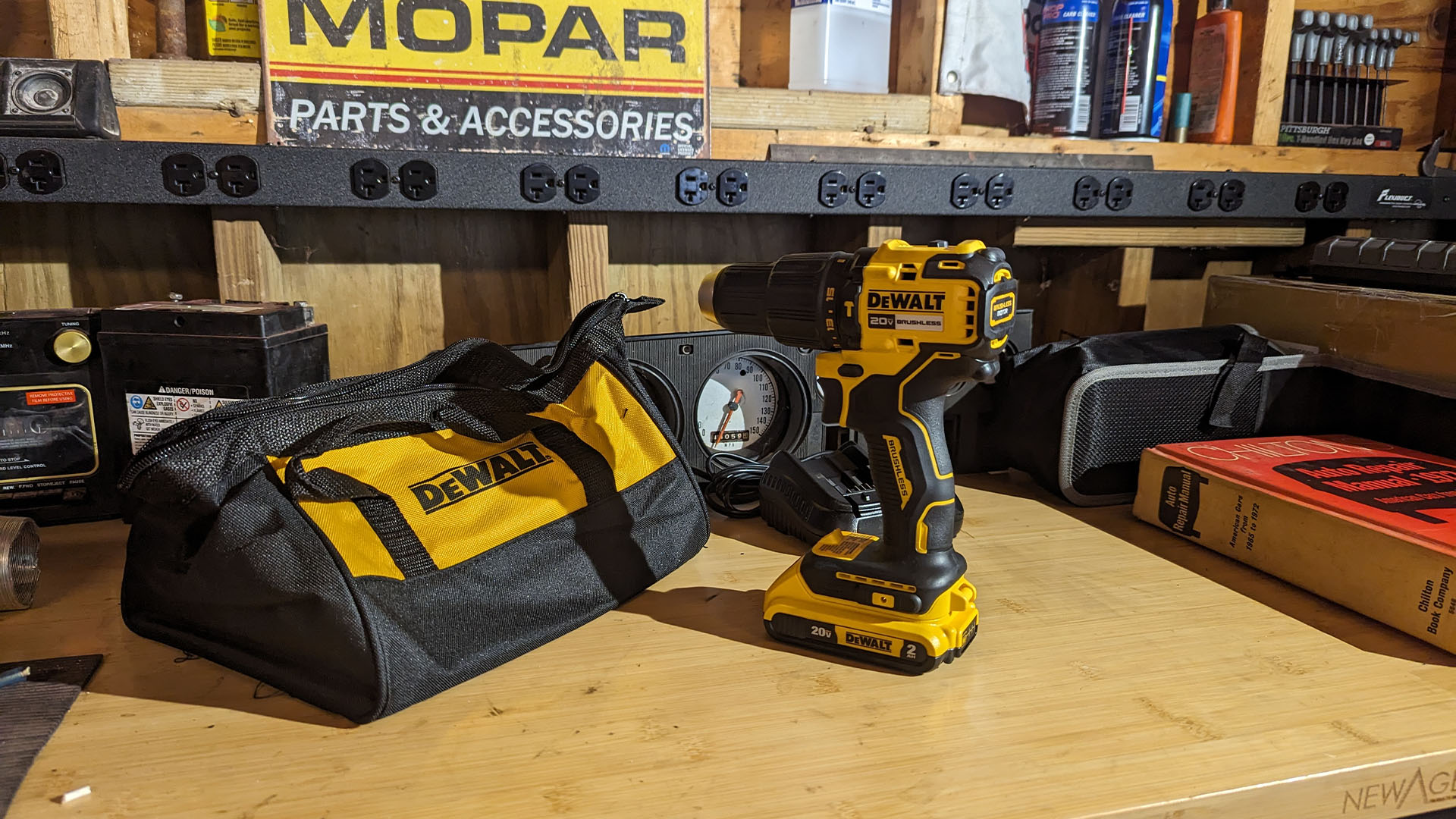

We may earn revenue from the products available on this page and participate in affiliate programs. Learn more ›
The name “hammer drill” alone inspires thoughts of big, burly tools and, traditionally, that’s what they are. Hammer drills use a hammering action to help bits drive through hard materials. It’s designed to quite literally hammer the bit to help it break up and cut away the material you’re driving into.
Typically, they’re used for jobs involving masonry and are large in stature because that just comes with the territory of producing the power and hammering action that’s required to do so. That’s not always the case, though.
DeWalt’s DCD798D1 20V Max 1/2-Inch Hammer Drill is a compact model that defies conventional thought. And though it’s not the first of its kind, it’s the first I’ve gotten my hands on. I’m very interested to see what it can do, but before I test it, I want to cover my initial impressions and get your take on it.

The Spec Sheet
At a height of 7.88 inches and a head length of 6.93 inches, this does not fit the mold of an average hammer drill. In fact, it’s only a touch bigger than DeWalt’s DCD793D1 20V Max 1/2-inch drill that I’m also testing out, which is much smaller than the DeWalt 3/8-inch drive corded drill I’ve used for years.
Like its 20V Max brother, this drill has a number of adjustments you can make. On top of a variable speed trigger, there are two drill speed presets, along with 15 total clutch levels. All of that, paired with operational speeds of up to 1,650 RPM and 404 UWO, makes performance a direct match to the other drill I’ll be testing—on paper, at least. Its versatility is upped with the inclusion of the hammer-drill function. It’s rated to deliver 28,050 BPMs, which is on pace for similarly sized tools from the competition.

The retail price of this hammer drill is $120, which is actually lower than the 20V Max drill. That fact has me a little skeptical, considering the performance specs outside of the hammer drill function are so similar, but I’ll reserve judgment until later. That said, the value is excellent, especially considering it fits into the 20V Max line, which I personally favor for DIY home and auto projects.
Small Package, High Versatility
I suspect the DeWalt DCD798D1 is going to work just fine as a normal drill. Perhaps a little behind some of my other options, but still provide enough performance to function as a go-to for odd jobs. I will be stacking it up against the aforementioned 20V Max drill and my corded DeWalt for the full-review, but I’ll reserve saying anymore until then.

I’m a bit skeptical of the hammer drill function and how useful it will be to me or someone like me. Keep in mind that I’m a “mechanic” first, then a DIY homeowner. Not the other way around. In other words, the very rare jobs that call for a hammer drill in this setting generally demand something a little beefier. Therefore, it comes off more as a cordless drill with the benefit of having a hammer function for few and far between jobs that require drilling into masonry. By no means do I think it’s a bad tool, I just think it’ll be a better fit for small tasks around the house than around the garage.
I’m hoping to be pleasantly surprised. You’ll have to wait until my in-depth review to find out, though. Stay tuned, and be sure to drop a comment if you have any questions or suggestions on how to test this tool out.